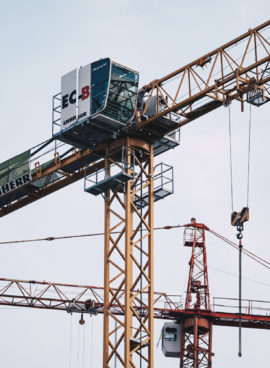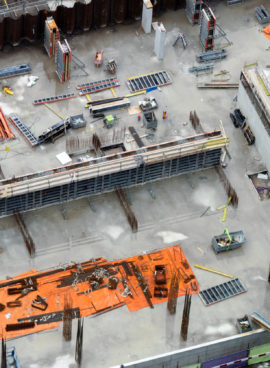Getting The Goods: Excusing Performance For The Supply Of Construction Materials
You negotiated and signed the terms for purchasing construction materials for the project. The project begins, but the materials arrive late or, worse yet, not at all. What can you do to avoid or mitigate liability for a breach of contract claim?
Our COVID-19 page has covered many related topics, including the applicability of a force majeure clause. But what if your contract doesn’t include such a clause or some other alternative? Many times, material is supplied under an invoice or purchase order, with no written purchase agreement or terms and conditions.
If the materials qualify
The Golden Rule? Termination Or Suspension Of Contracts
One version of the Golden Rule—he/she who holds the gold makes the rules—is particularly true when it comes to suspension or termination clauses in design and construction contracts. In one of the tell-tale clues of who prepared the contract, termination clauses and suspension clauses (to a lesser extent) typically give all the power to the person who prepared the contract. For example, if an owner prepared the prime contract, the owner typically has all the rights to terminate the contract; the general contractor usually has none.
Aside from making an interesting anecdotal study
Say It Ain’t So: Pay-If-Paid And COVID-19
Although the economic effects of COVID-19 may be felt for many years to come, its effect on payment for ongoing construction may be more immediate. What is the general contractor’s obligation to pay subcontractors when the project owner’s funds run out? Bluntly, it depends. One important consideration is whether the subcontract agreement contains a pay-if-paid clause.
1. What is Pay-If-Paid?
A pay-if-paid clause, more eloquently called a contingent payment clause, requires the owner to pay the general contractor before the general contractor has to pay its subcontractor.
We Did Not See That Coming: COVID-19 And Meeting Of The Minds
Very few people in the construction industry saw the novel coronavirus coming or reaching pandemic stage at the time they entered into their contracts. Now that we are in full pandemic mode, with layers of federal, county and city guidelines or requirements for worksite safety, how does not seeing the pandemic impact your contractual obligations?
1. Let’s Meet
Texas, like most other states, requires proof of certain elements for a legally binding contract to exist. One of the elements required for contract formation is a meeting of the minds of the contracting parties. What is
Never, Never, Never Give Up: Frustration Of Performance
What happens when unanticipated delays hit an ongoing project, but the contract does not contain a force majeure clause or an escalation clause? There are times when circumstances frustrate performance to the point where giving up may seem like the only option. The novel coronavirus and COVID-19 pandemic present such circumstances. Frustration of performance, a case-law driven doctrine, may provide some relief.
1. Finding Futility
Frustration of performance is a form of rescission and provides legal excuse for not performing contractual obligations. It is closely related to �







